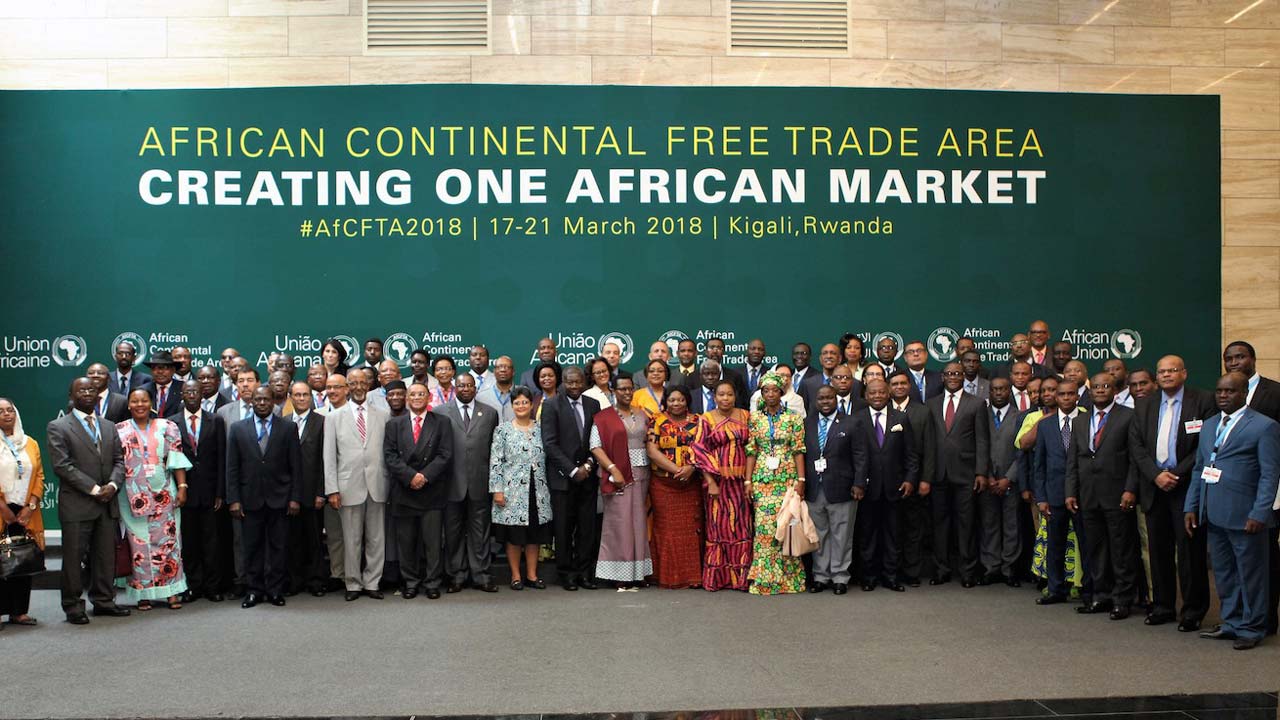
• Commend Buhari’s Refusal To Sign CFTA Agreement
Agreements between the Federal Government and foreign partners must be entered into with utmost caution, as doing otherwise could plunge Nigeria into decades of servitude.
Stakeholders gave this warning in exclusive interviews with The Guardian.
Speaking against the backdrop of the country’s last minute decision not to sign the Continental Free Trade Agreement in Kigali, Rwanda in March, they also commended President Muhammadu Buhari for not taking a step that could have further impoverished the economy.
Questioning the benefits of even the Economic Community of West African States (ECOWAS) to Nigeria, the President of the Coalition of South-South Chambers of Commerce, Industry, Mines and Agriculture (FOSSCCIMA), Billy Gillis-Harry, regretted that the country has become “the butt of humour and comedy” in the sub-regional group.
“In the ECOWAS secretariat, you hardly see a Nigerian of value that is in the decision-making process, except by name. We built the ECOWAS secretariat and donated it. You have to be able to speak French to do good business there. That is a good example telling you how Nigeria will lose again in AfCFTA, when we are not producing or manufacturing,” he said.
Nigeria is not under any obligation to make other countries happy when its strategic interests are at risk, stressed senior lecturer in the Department of Political Science, University of Lagos, Dr Emmanuel Onah.
According to him, “Every government has a responsibility to its citizens more than it has to the mythical African continent that is more on the level of idealism.” He contended, therefore, that Nigeria has made no diplomatic infraction by pulling out of the deal, especially when it received fresh information indicating its key economic sectors could be jeopardised.
He said: “There is nothing on the diplomatic front that says you cannot back off when you discover that something you are part of will ultimately make you lose out. Diplomacy is not such a code that you are bound by the words given, because the words given were based on knowledge available at that time.
“If the country has got new knowledge, new information, then the country will act based on the newest information, and this is completely logical. Other countries that are going to benefit, to the detriment of Nigeria, would surely not be happy that we are pulling out. But the government will be failing its citizens if it goes ahead to sign the treaty, to the detriment of its own people.”
The mistakes of previous international accords should not be repeated, said Fellow of the Chartered Institute of Bankers and lecturer at the University of Calabar’s Department of Banking and Finance, Mr. Bassey Ibor.
According to him, “One of the challenges we had before was that we opened our doors to so many things coming in from all over the world. And before we knew it, Nigeria had become a dumping ground and our own high quality products were dropped.”
Urging the country’s leaders never to “go into another agreement that will bring us back to the state we are trying to get out from,” Ibor said: “We need to see what you are bringing into the market. But if it is generally free for everybody, it won’t be fine. As long as the policy effort by the government is well intentioned, the industries are revived, commerce resumes, industrial development takes off and this will not hinder it, it will be fine.”
Ayuba Wabba, President of the Nigeria Labour Congress (NLC), who expressed dismay that “some countries signed because they are not truly independent and still rely on their colonial masters to lead them,” commended the Federal Government for its decision. He explained: “Nigerians must be made to know that it is not only she that did not sign the agreement. South Africa, the second largest economy on the continent, also did not. They argued that they also must consult before taking any decision.
[related ids=”586127,589037″]
“For us at the NLC, it is not degrading for Nigeria not to have signed. If anything, it is a sign of strength. We all know that Nigeria is 10 times the size of many countries in Africa. With the size of our market and population, Nigeria must be at the driving seat. Nigeria and South Africa have demonstrated leadership. Even if smaller countries are signing, that will not stop us from strategically articulating our interests, protecting our local industries and protecting jobs. I disagree with former President Olusegun Obasanjo who erroneously said it was a sign of weakness.”
General Secretary of the NLC, Dr Peter Ozo-Eson, warned against treaties that could ambush the economy and turn it into the proverbial ‘fetcher of water and hewer of wood’.
He told The Guardian: “Things, for instance, such as the power to negatively influence the capacity of our industries to compete, need to be resolved before we can have a free, level-playing field. The agreement, as it currently stands, will not do that. And because Nigeria is a country with a huge population, the employment of its citizens requires definite industrialisation, particularly manufacturing. It should, therefore, not go into this agreement without ensuring that these concerns are taken on board.”
He added: “Nigeria’s situation is different from countries like Senegal and other smaller West African countries, because for them, agricultural export is their mainstay. So, they can benefit from the process. We can then understand why a number of those West African countries were willing to sign. But in the interest of Nigeria, and for the protection of our industries and our capacity to industrialise, it is important that the government holds out, and we think it is doing the right thing by holding out.”
[ad unit=2]



